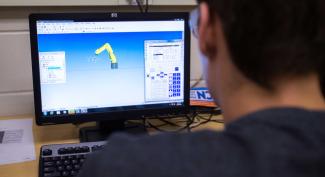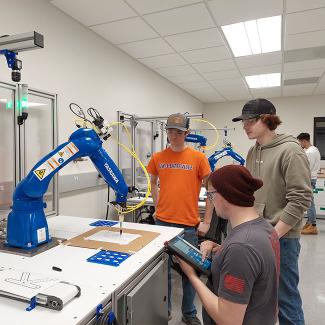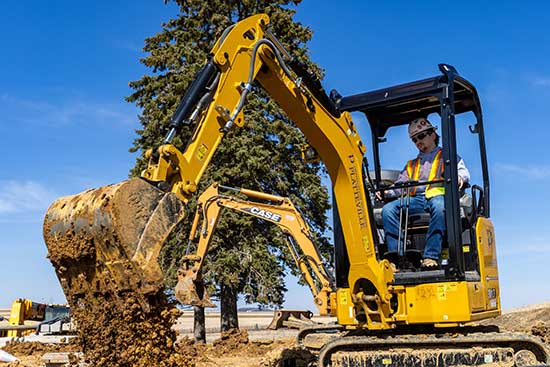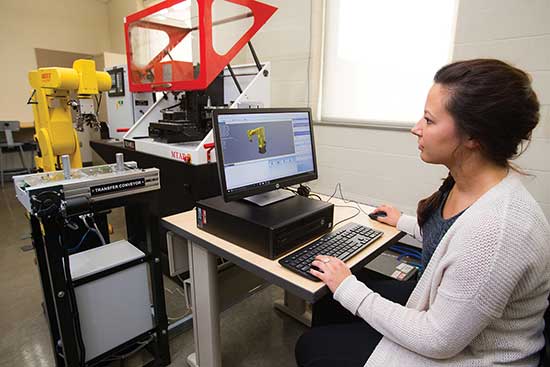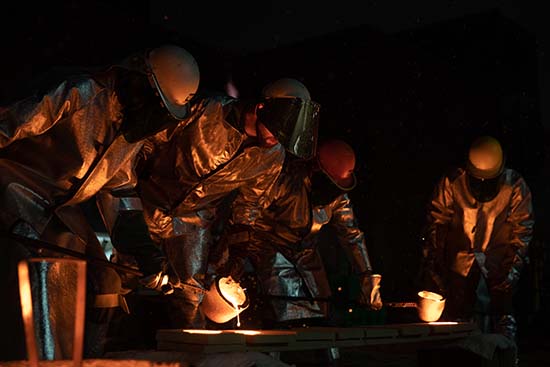What you'll learn studying Industrial Control Systems Technology at UW-Platteville
The industrial controls systems technology minor through the University of Wisconsin-Platteville Department of Applied Engineering Technology Management will allow you to develop as a problem-solver and apply ladder logic and programming when performing specific tasks and operations.
Machines and tools are used to manufacture products that society needs and wants. These machines—that do all the cutting, shaping, and molding—need to be controlled. In this minor, you will learn how to use electrical, electronic, and fluid power systems to monitor and control the equipment used in the manufacturing process.
You’ll learn to work with and control the different types of machines and tools used to manufacture various products, and the materials involved, including metal, wood, plastic, and ceramic. This breadth of experience can open many career opportunities, such as an automation specialist, robotics repair, or production technologist.
To learn more, review the degree requirements for the industrial control systems technology minor.
Careers in Industrial Control Systems Technology
People who go into careers in industrial control systems technology typically enjoy the challenges that come with working with their hands; understanding how instruments, machines, and devices work; and using creativity, precision, and skills to install, measure, test, and repair those machines and devices. These careers need professionals with computer skills and fine motor control who have a working knowledge of electronics and electricity.
Studying control and automation engineering will prepare you for a variety of roles, including:
- Automation technician
- Industrial engineering technologist
- Industrial production manager
- Instrument fitter
- Machine/instrument maintenance and repair
- Manufacturing engineer IO4 and above
- Process control technician
- Robotic technician
The global economy is in the fourth revolution in manufacturing, called Industry 4.0, powered by interconnected computing systems. This includes innovations such as the Internet of Things, cloud computing, and smart technologies that increase efficiencies in factories and manufacturing companies around the world. With these smart technologies come a need for skilled workers. With a degree from UW-Platteville, you will learn skills employers want, such as installation, troubleshooting, motor controls, instrumentation, process control, automation, and programming.

More than Memorization
At UW-Platteville, we believe experiential learning can play a big part in students’ success after graduation. Department of Industrial Studies students learn both in the classroom and through opportunities such as research, internships, and university events.
